Medical Device Clinical Trial Regulations in Malaysia: A Report
VerifiedAdded on 2022/08/21
|5
|1063
|45
Report
AI Summary
This report analyzes the key regulations for conducting clinical trials in Malaysia, specifically focusing on medical devices like prosthetic heart valves made from animal tissues. It details the necessary approvals from bodies such as the Medical Device Authority (MDA), Drug Control Authority (DCA), and the Ministry of Health (MOH), including the classification of medical devices, required certifications (CE mark, ISO), and the role of Malaysian Authorized Representatives (MAR). The report outlines the application processes, including the use of the ASEAN Common Submission Dossier Template (CSDT) and the need for Clinical Trial Import Licenses (CTIL) and exemptions (CTX). It emphasizes reporting requirements for participant data, adverse events, and trial results to the MDA and ethics review committees. Additionally, it clarifies the responsibilities of sponsors, including financial compensation for participants in case of harm. The report concludes by highlighting the importance of ethical conduct and adherence to regulations for successful clinical trials in Malaysia.
1 out of 5
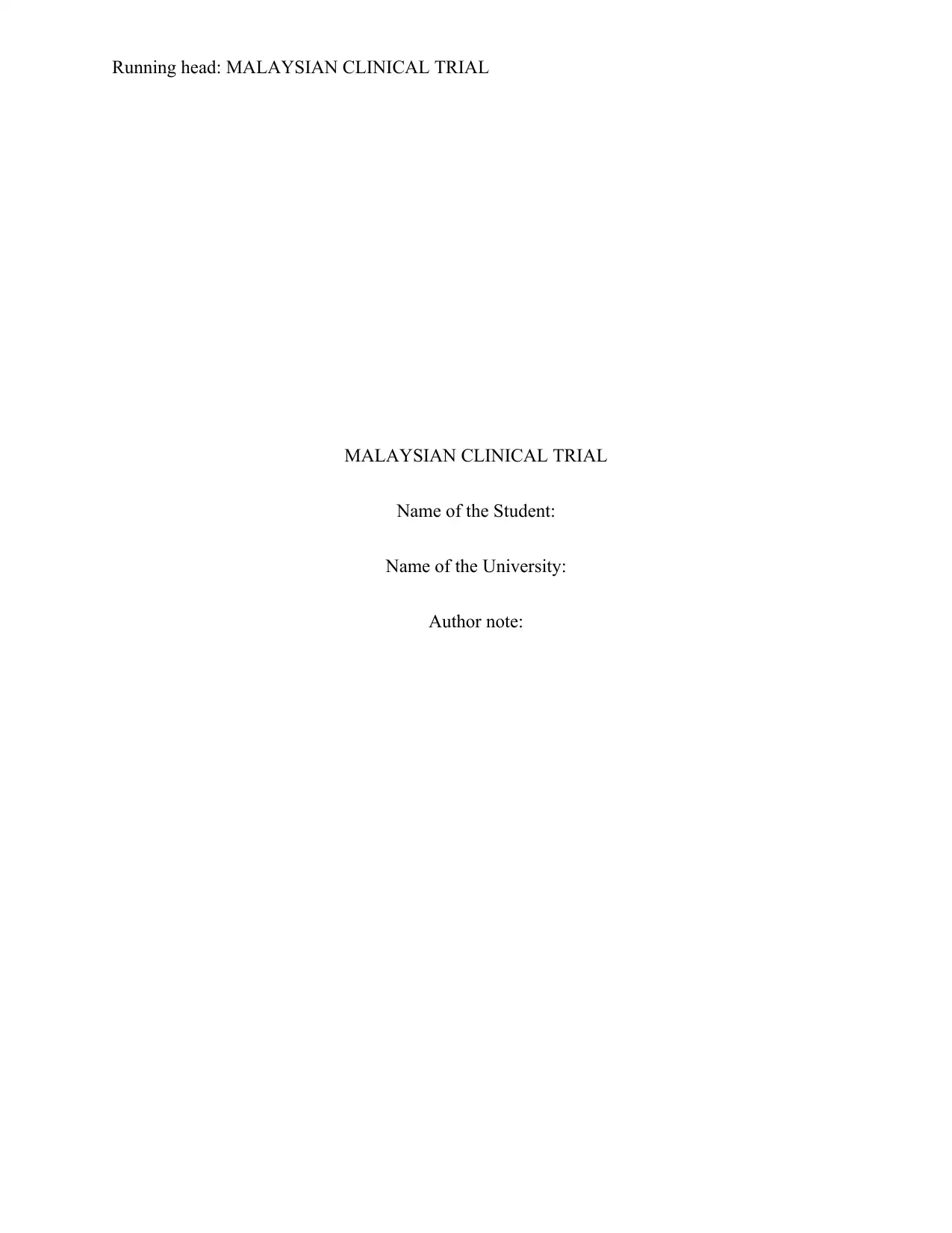
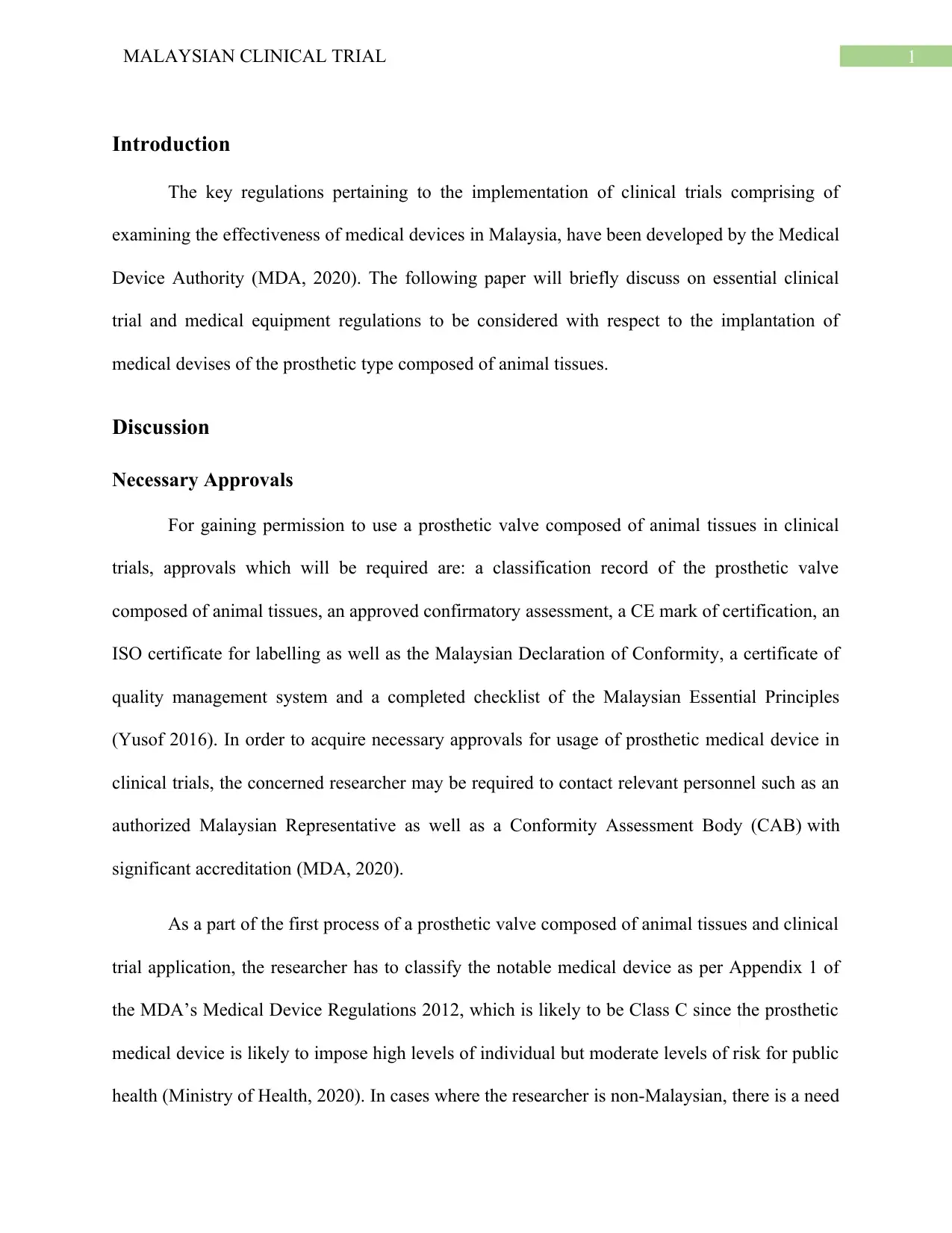
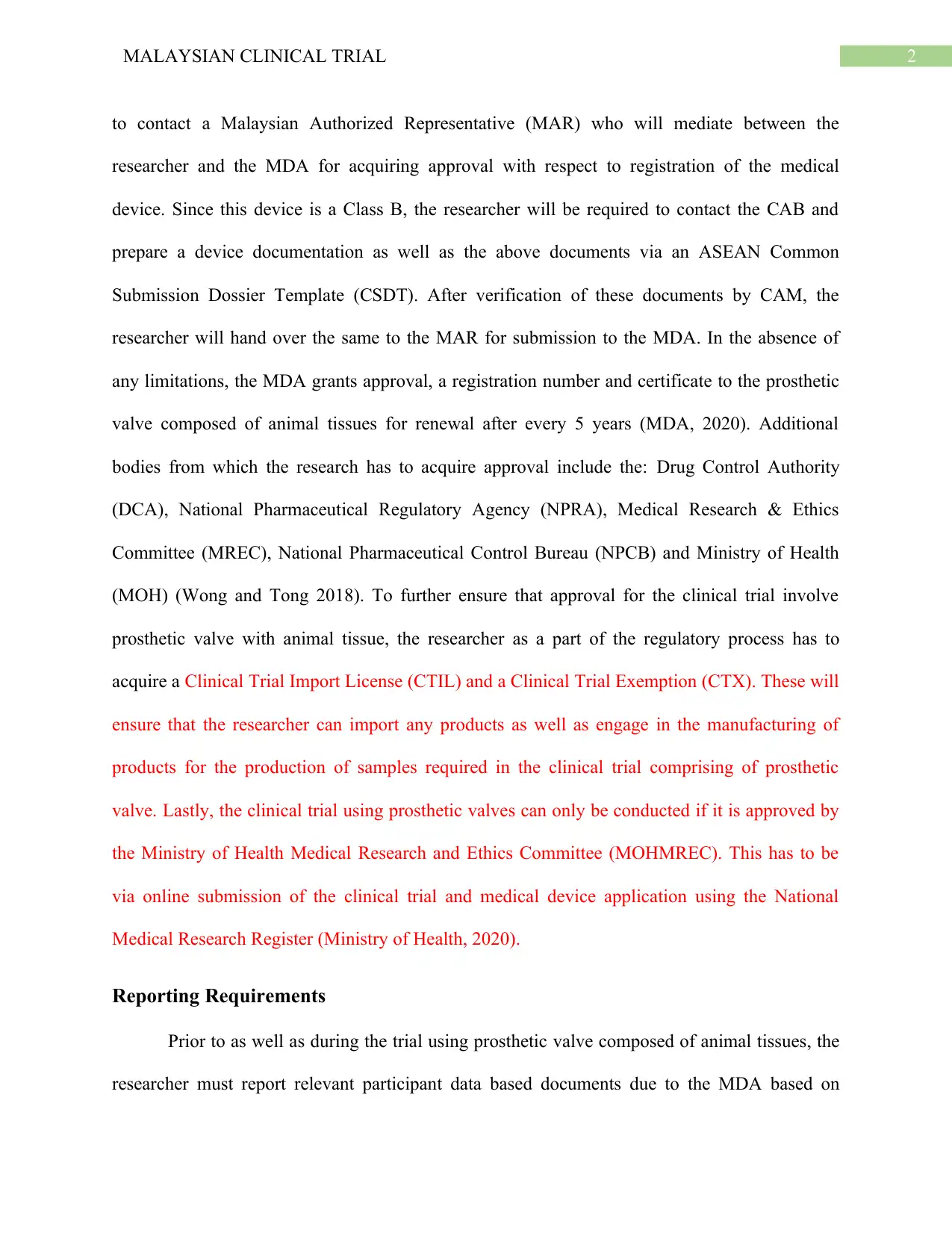

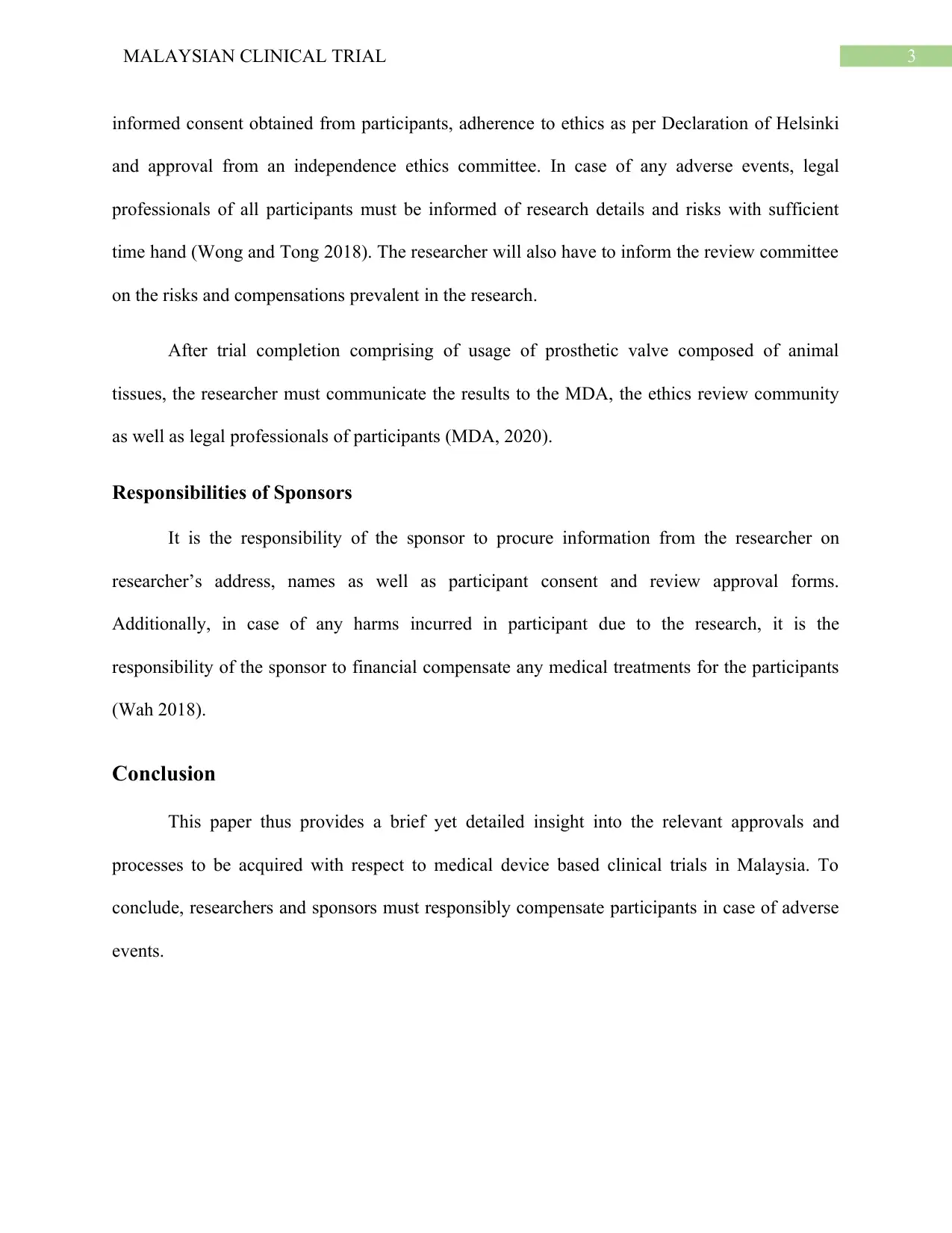
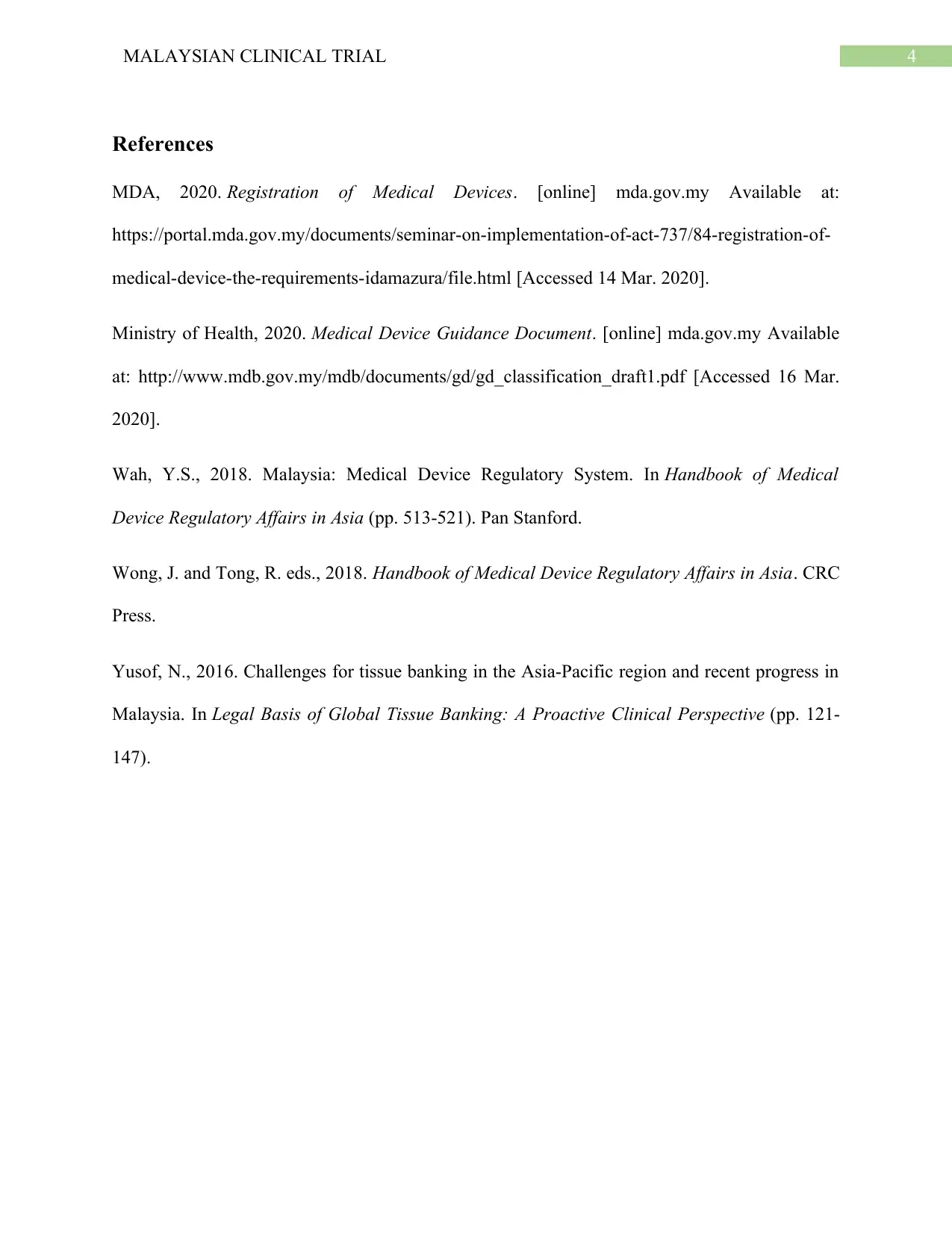
![[object Object]](/_next/static/media/star-bottom.7253800d.svg)